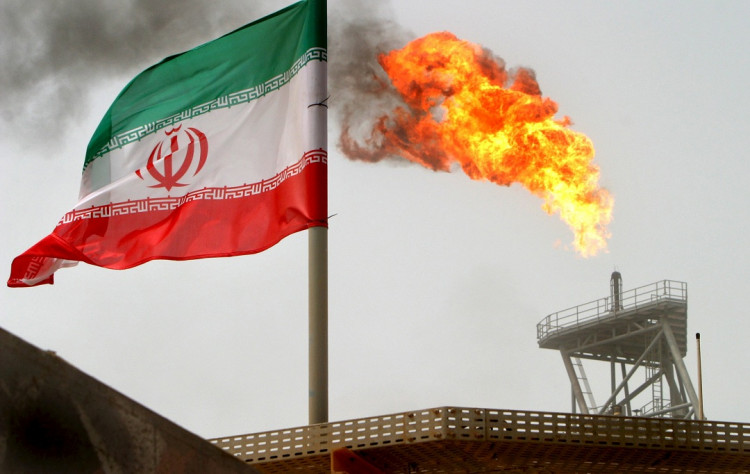Global oil prices surged and equity markets tumbled Friday after Israel launched a wave of airstrikes targeting Iranian nuclear and military facilities, killing at least two of Tehran's top commanders and triggering a sharp escalation in Middle East tensions.
Brent crude, the international oil benchmark, jumped 6.3% to $71 a barrel, with U.S. crude climbing 8.5% to nearly $74 after intraday gains of as much as 13%. Those are the sharpest one-day spikes since March 2022, following Russia's invasion of Ukraine.
"This operation will continue for as many days as it takes to remove this threat," Israeli Prime Minister Benjamin Netanyahu said in a televised address. His government has declared a state of emergency in anticipation of Iranian retaliation, which began Friday with the launch of over 100 drones toward Israeli territory.
Markets reacted swiftly. Dow futures fell more than 540 points, or 1.3%, while S&P 500 and Nasdaq futures dropped 1.4% and 1.6%, respectively. Gold, a traditional safe haven, rose about 1% to $3,413.60 per troy ounce.
The surge illustrates "both immediate supply concerns and a growing sense that negative headlines could extend the timeline for escalation unlike prior Israel-Iran episodes," said Ahmad Assiri, a research strategist at Pepperstone.
U.S. Secretary of State Marco Rubio said Washington had no role in Israel's actions and warned Tehran not to target American assets. Iran's Supreme Leader Ayatollah Ali Khamenei vowed "severe punishment," further raising fears of broader regional conflict.
Energy analysts are now closely watching whether oil infrastructure becomes a target in the conflict.
Oil prices' "ultimate landing point will likely hinge on whether Iran revives the 2019 playbook and targets tankers, pipelines, and key energy facilities across the region," said Helima Croft of RBC Capital Markets, referencing Iranian-backed attacks on Saudi energy assets that year.
While Israel has not targeted Iran's oil infrastructure directly, Croft warned that could change if the operation extends. She also noted that President Donald Trump may lean on OPEC for spare capacity to stabilize prices and limit the domestic political fallout of higher fuel costs.
"If oil is caught in the cross-fire, we anticipate that President Trump will seek OPEC spare barrels to try to keep a lid on prices and shield U.S. consumers from the economic impact of the Middle East conflict," Croft added.
Barclays' Amarpreet Singh said the situation remains volatile. "So far, these attacks have had no effect on oil market fundamentals but the risk of that eventuality has obviously increased," he wrote in a note.
Analysts warned that any disruption to oil flows through the Strait of Hormuz-a passage for roughly a third of global seaborne crude-could push prices to triple digits.
"Should oil exports through the Strait of Hormuz be affected, we could see $100 oil," said Andy Lipow, president of Lipow Oil Associates.
Bob McNally of Rapidan Energy Group said the market had been "complacent about the risk of geopolitical disruptions." He now expects "significantly more risk premium to come into the price of crude in the coming days."






